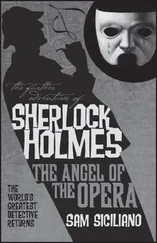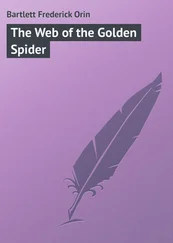Ahern, Jerry - The Web
Здесь есть возможность читать онлайн «Ahern, Jerry - The Web» весь текст электронной книги совершенно бесплатно (целиком полную версию без сокращений). В некоторых случаях можно слушать аудио, скачать через торрент в формате fb2 и присутствует краткое содержание. Жанр: Старинная литература, на английском языке. Описание произведения, (предисловие) а так же отзывы посетителей доступны на портале библиотеки ЛибКат.
- Название:The Web
- Автор:
- Жанр:
- Год:неизвестен
- ISBN:нет данных
- Рейтинг книги:4 / 5. Голосов: 1
-
Избранное:Добавить в избранное
- Отзывы:
-
Ваша оценка:
- 80
- 1
- 2
- 3
- 4
- 5
The Web: краткое содержание, описание и аннотация
Предлагаем к чтению аннотацию, описание, краткое содержание или предисловие (зависит от того, что написал сам автор книги «The Web»). Если вы не нашли необходимую информацию о книге — напишите в комментариях, мы постараемся отыскать её.
The Web — читать онлайн бесплатно полную книгу (весь текст) целиком
Ниже представлен текст книги, разбитый по страницам. Система сохранения места последней прочитанной страницы, позволяет с удобством читать онлайн бесплатно книгу «The Web», без необходимости каждый раз заново искать на чём Вы остановились. Поставьте закладку, и сможете в любой момент перейти на страницу, на которой закончили чтение.
Интервал:
Закладка:
This was not for the greater glory of mother Russia, he decided. As Major Borozeni stepped inside the abandoned farmhouse, he thought he heard the scurrying sounds of rats. He turned to his sergeant, saying, "Krasny, get a detail in here to clean this place; I do not sleep with rats."
"Yes, Comrade Major." The sergeant saluted.
Borozeni merely nodded, then stepped back outside into the cold. His men were retreating, ponsolidating their position. The eastern coastal regions of the United States were being buffeted by freak storms. Rebellion was starting everywhere along the southeast coast since the escape, in Savannah, of the Resistance fighters, led by the woman who had bluffed her way through, with him. He felt a smile cross his cracked lips as he dusted snow from the front of his greatcoat; then he pulled away his gloves and felt under the coat for his cigarettes.
"All is being prepared, Comrade Major," Sergeant Krasny told him, saluting as a squad of men with hand torches went past Borozeni into the farmhouse.
"She was quite a woman, Krasny."
"Comrade Major?"
"The woman who effected that escape. I would like to meet her again, see what she looks like without a submachine gun or a pistol in her hands. Or when she isn't all wet, for that matter."
"Yes, Comrade Major."
"Yes." He nodded, walking to keep his feet from freezing. Despite the cold he liked the prospects of the farmhouse even less than the storm. He was to take his contingent of men to Knoxville, Tennessee. He wondered precisely what was in Knoxville; there had been a . World's Fair there once, he seemed to recall. He had been on detached duty then, training guerrilla fighters in the Middle East.
He decided he should have been somewhere else. He nad never like the Middle East, though he could have used some of its heat now.
The other woman in the truck had used her name. "Sarah," he said, roiling the name on his tongue, tasting it. She was probably someone's wife, perhaps one of the prisoners, who had been released, but he didn't think so. Perhaps someone's widow—one of the men who had been executed.
But then, he asked himself, inhaling deeply on the cigarette, wouldn't she have killed him—a Russian who was an officer, one of the ones responsible for the war?
He threw the cigarette into the snow. She was probably safe in her husband's arms by now ... or perhaps not.
He felt himself smiling. The trek across the snow, the stalling vehicles, the ice, the freezing temperatures . . . They were somewhere in South Carolina; he didn't remember the name of the town that would be ahead.
He lit another cigarette. He watched the flame of his lighter dancing against the blue whiteness of the ground. "Sarah," he murmured again. The sort of woman he had always wanted to meet—and never would again /. .
He shook his head, smiled, and turned, starting toward the farmhouse.
"Krasny! How goes the detail?"
Natalia studied the map—another half-day if the weather were to ease and they would be in central ,Indiana. She could convince Paul to leave her there. She looked more intently at the map; she had heard the sound again, beyond the ground-cloth windbreak.
Reaching up to the bootlaces that secured the sleeping bag about her like a coat, she undid them. Finding the flap of the right holster on her belt, she opened it slowly to reduce the noise of the snap in the stillness that was only punctuated by the howling of the wind.
The wood grips felt cold against her bare hand. She glanced at Rubenstein, sleeping, debating whether to awaken him. But if the sound were nothing it would only further convince him he had to take her all the way into northern Indiana. She wanted him back with John Rourke, helping Rourke in the search for his wife and children, helping to keep Rourke alive—for herself?
She shook her head; then extracted the revolver from the holster. It and the one like it on her left hip were curious guns. On the right faces of their slab-sided barrels were engraved American Eagles. The guns were
originally four-inch stainless steel Smith & Wesson Model s, the .
Magnum L-frame. On the left flats of the barrels were duplicate inscriptions: METALIFE
Industries, Reno, Pa—by Ron Mahovsky. The actions were the smoothest she had ever felt on a gun; the revolvers were round butted, polished, tuned, perfect. Rourke, when they had been given to her, told her he had known the maker of the guns well before the Night of the War. They would be the best guns she would ever own.
The American Eagles. Mahovsky had made them for President Sam Chambers before the war, and Chambers, for her part in the evacuation of Florida, had insisted she take them. She smiled at the memory, recalling his words.
fT can't very well give a Russian spy an American medal, can I? And anyway, we're fresh out of medals. Take these and use 'em to stay alive with, miss."
She had taken them, and the holsters Chambers had had for them; Rourke had found her a belt that better matched her waist size.
She heard the noise again; it snapped her out of her thoughts. She extracted the second revolver now, gloves off, edging up to her feet. She prodded Rubenstein with her left foot; the man rolled over, looking up at her. She raised a finger to her lips, then pointed to her ear.
Rubenstein blinked his eyes, then nodded, suppressing a yawn. He edged back from the fire, the battered Browning High Power he carried coming into his right hand, the hammer slowly cocking back. In the stillness against the wind, it sounded loud—too loud.
She gestured to Paul with one of the guns—that she would cross around behind the bridge support and look. He nodded; he was sensible, she thought. He wore no boots, but she did, and there wasn't time for an alternate
plan. The sleeping bag fell from her shoulders and she held the pistol in her left hand against her abdomen, flat, to keep her coat closed more tightly about her.
She shook her head; the wind caught her hair as she stepped out of (he crude lean-to into the night. Brigands were her worry—Russian soldiers she could take care of. She had her identification, spoke Russian, could prove who she was and lie about who Paul was.
But Brigands . . . that had been the risk they had run lighting a fire; but otherwise, Paul's feet might have been gone. Frostbite, left untreated, could so quickly turn gangrenous. She didn't want that for Paul—death or being crippled. A friend was too hard a thing to find.
Whatever happened, the fire had been worth it, necessary.
She froze, her back flattening against the concrete bridge support as she heard the sound again, this lime more clearly—a voice, whispering, meaning there was a second person—at least—in the darkness of the storm.
She stayed against the bridge support, cold, both pistols in her_hands, waiting.
They were shiny for night work, but she liked them, the polished stainless steel, the permanence of it— "Permanence," she whispered to herself. What was permanent these days? She had just said good-by to a man whom she had told she loved, a man she would never see again, never forget. And soon, it would be good-by to Paul as well, her friend.
She tried to remember who her friends had been.
Tatiana from her ballet class—they had traded secrets. Tatiana had been Jewish, like Paul; and Tatiana's father had done something—Natalia had never known what— and Tatiana had never returned to ballet class again.
Natalia tried to remember her own parents, but it was impossible. She was only able to remember what her uncle who had raised her nad told her about them. Her father had been a doctor, as John was a doctor. Her mother had been a ballerina—they had died. Her Uncle Ishmael had never really fully explained how.
She wondered, silently, whether, when she died, those who cared would know at all.
Читать дальшеИнтервал:
Закладка:
Похожие книги на «The Web»
Представляем Вашему вниманию похожие книги на «The Web» списком для выбора. Мы отобрали схожую по названию и смыслу литературу в надежде предоставить читателям больше вариантов отыскать новые, интересные, ещё непрочитанные произведения.
Обсуждение, отзывы о книге «The Web» и просто собственные мнения читателей. Оставьте ваши комментарии, напишите, что Вы думаете о произведении, его смысле или главных героях. Укажите что конкретно понравилось, а что нет, и почему Вы так считаете.







